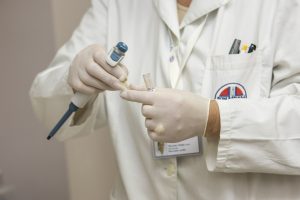 Every day around the world scientists collect and save specimens for the future study of various illnesses, but some members of the polio eradication community are concerned that these stashes of samples could contain strains of the poliovirus and eventually lead to a future polio outbreak. The Global Polio Eradication Initiative mandates that all research samples be destroyed for that very reason, however scientists focused on areas other than polio, such as diarrheal and respiratory illnesses, don’t feel that this rule should apply to their research, and have been resistant to comply, especially since many have spent years collecting samples. The World Health Organization (WHO) worries that this could become a bigger issue down the line since polio patients and children who received the oral immunization emit the virus in their stool for a time after being infected or vaccinated. Respiratory specimens could also pose an issue since the poliovirus has been found in tonsils and adenoid glands. The WHO is taking steps toward a compromise that would allow for the preservation of low-risk specimens and the destruction of those deemed high risk.
Every day around the world scientists collect and save specimens for the future study of various illnesses, but some members of the polio eradication community are concerned that these stashes of samples could contain strains of the poliovirus and eventually lead to a future polio outbreak. The Global Polio Eradication Initiative mandates that all research samples be destroyed for that very reason, however scientists focused on areas other than polio, such as diarrheal and respiratory illnesses, don’t feel that this rule should apply to their research, and have been resistant to comply, especially since many have spent years collecting samples. The World Health Organization (WHO) worries that this could become a bigger issue down the line since polio patients and children who received the oral immunization emit the virus in their stool for a time after being infected or vaccinated. Respiratory specimens could also pose an issue since the poliovirus has been found in tonsils and adenoid glands. The WHO is taking steps toward a compromise that would allow for the preservation of low-risk specimens and the destruction of those deemed high risk.
For the full article, visit StatNews.com.